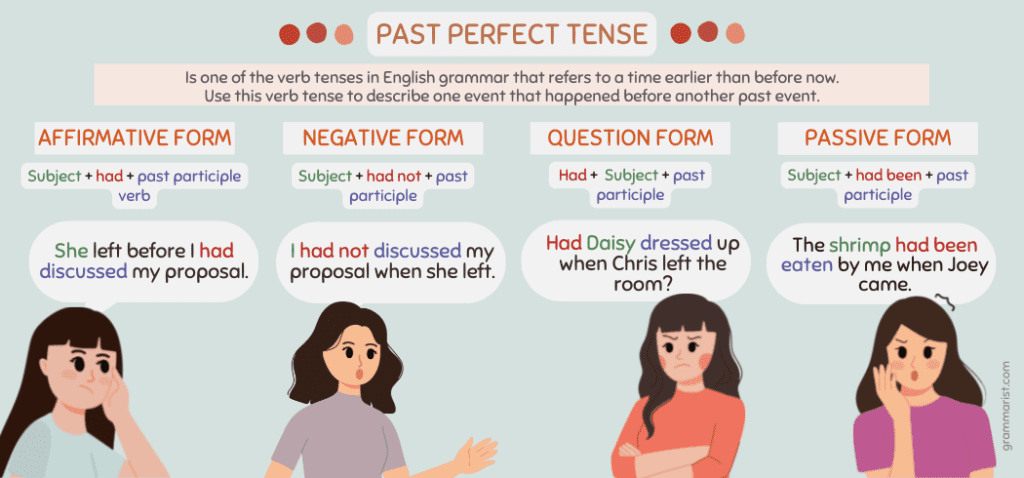Understanding when to use the past perfect tense in English can be confusing for many learners. The past perfect is used to show that an action took place before another action in the past. It is important to know when to use this tense correctly to convey the sequence of events accurately in a sentence.
One common mistake that people make is using the past perfect when it is not necessary. It is important to remember that the past perfect is only used when there are two actions in the past, and one action happened before the other. By understanding the specific situations in which the past perfect should be used, you can improve your overall English grammar skills.
When to use the past perfect:
- When talking about an action that happened before another action in the past: “She had already eaten dinner when I arrived.”
- When describing a sequence of events in the past: “He had studied for hours before taking the exam.”
- When expressing regrets or wishes about the past: “I wish I had known about the meeting earlier.”
It is important to pay attention to the context of the sentence to determine whether the past perfect is needed. If there are two actions in the past and one happened before the other, then the past perfect should be used. However, if the actions are not related in terms of time, then the past perfect is not necessary.
By practicing and paying attention to the specific situations in which the past perfect should be used, you can improve your overall English language skills. Using the past perfect correctly will make your writing more precise and help you communicate effectively with others.
In conclusion, knowing when to use the past perfect is essential for accurate and clear communication in English. By understanding the specific situations in which the past perfect is appropriate, you can enhance your grammar skills and improve your overall fluency in the language. Remember to use the past perfect when describing actions that occurred before another action in the past, and practice using it in your writing and speaking to become more proficient in English.
